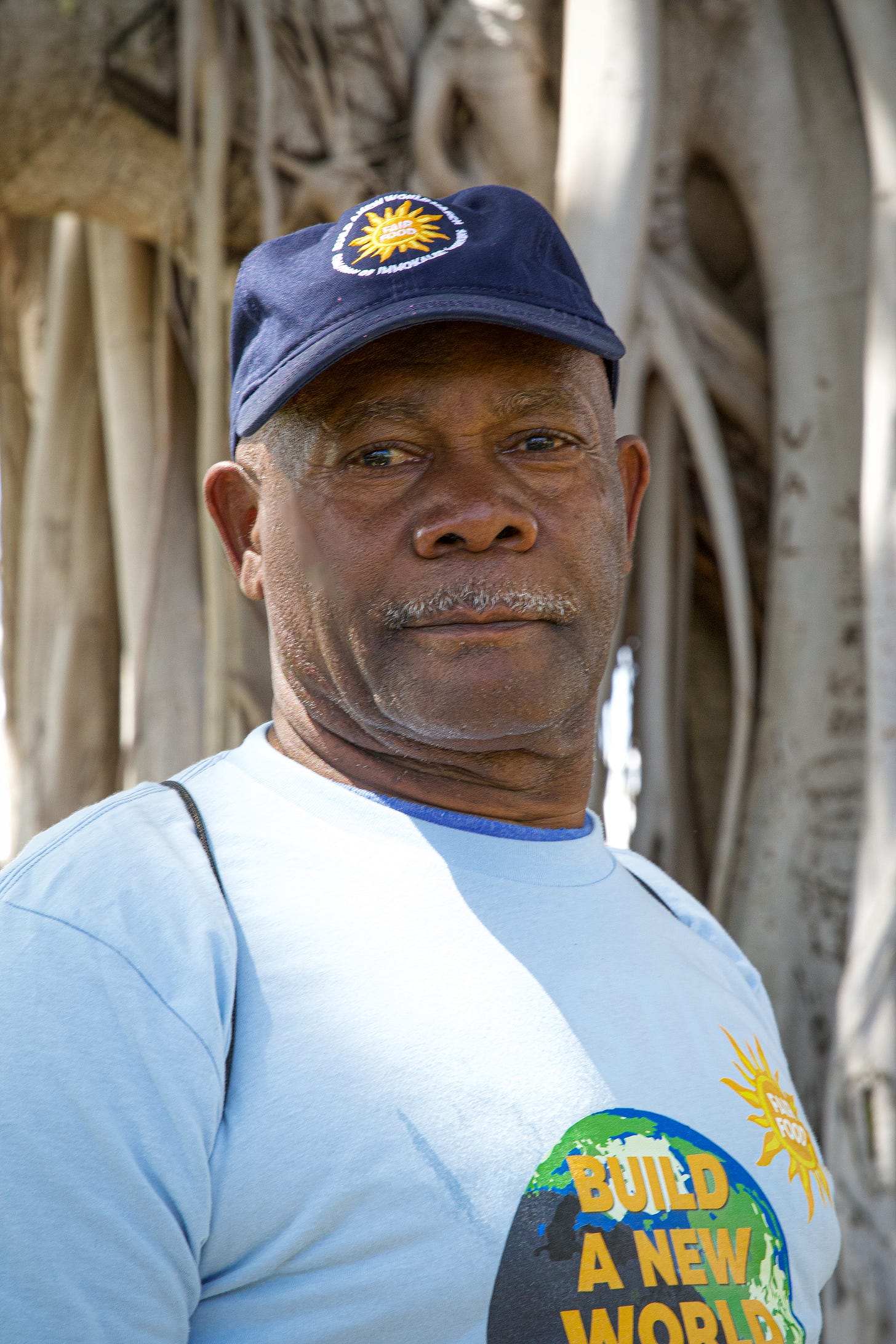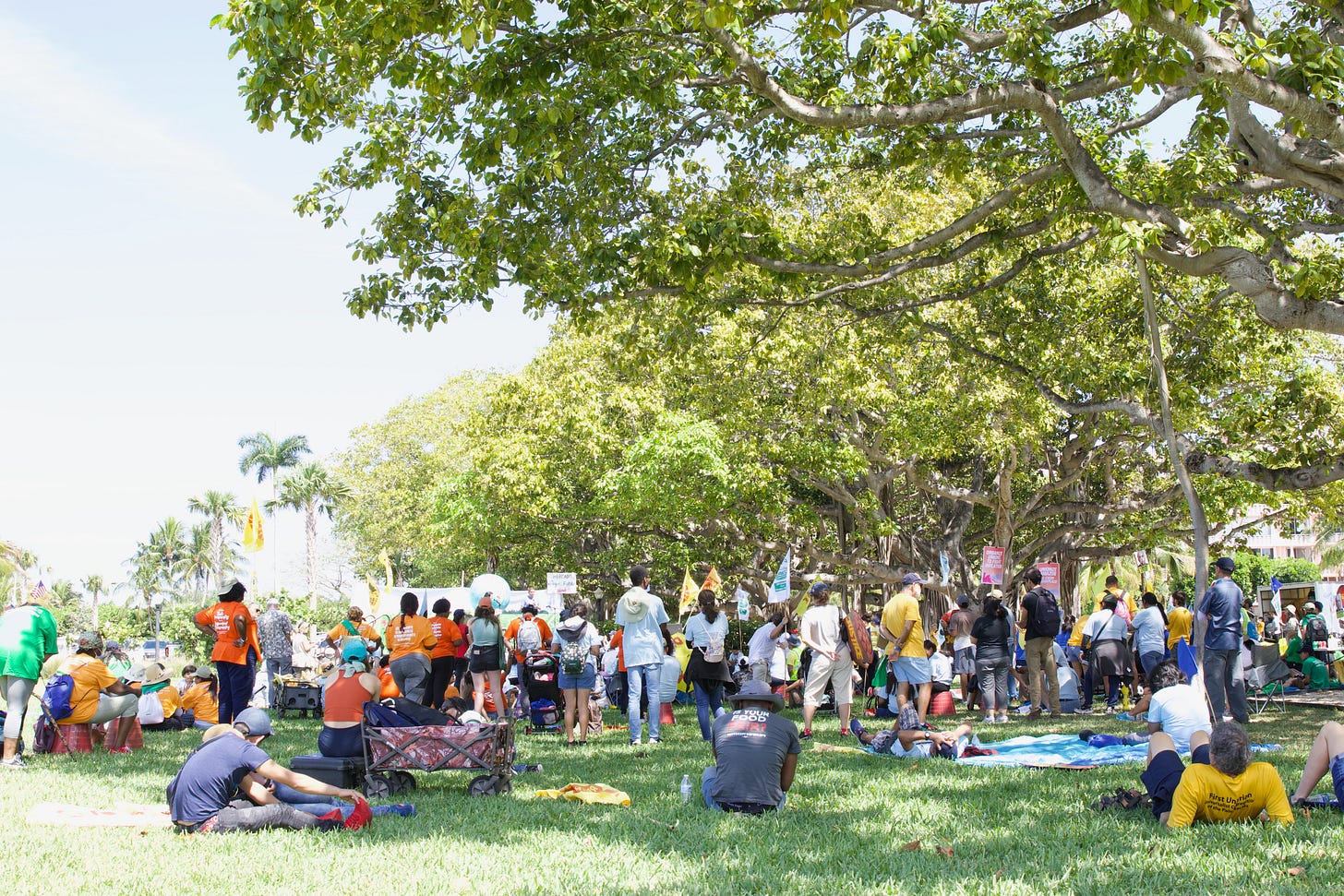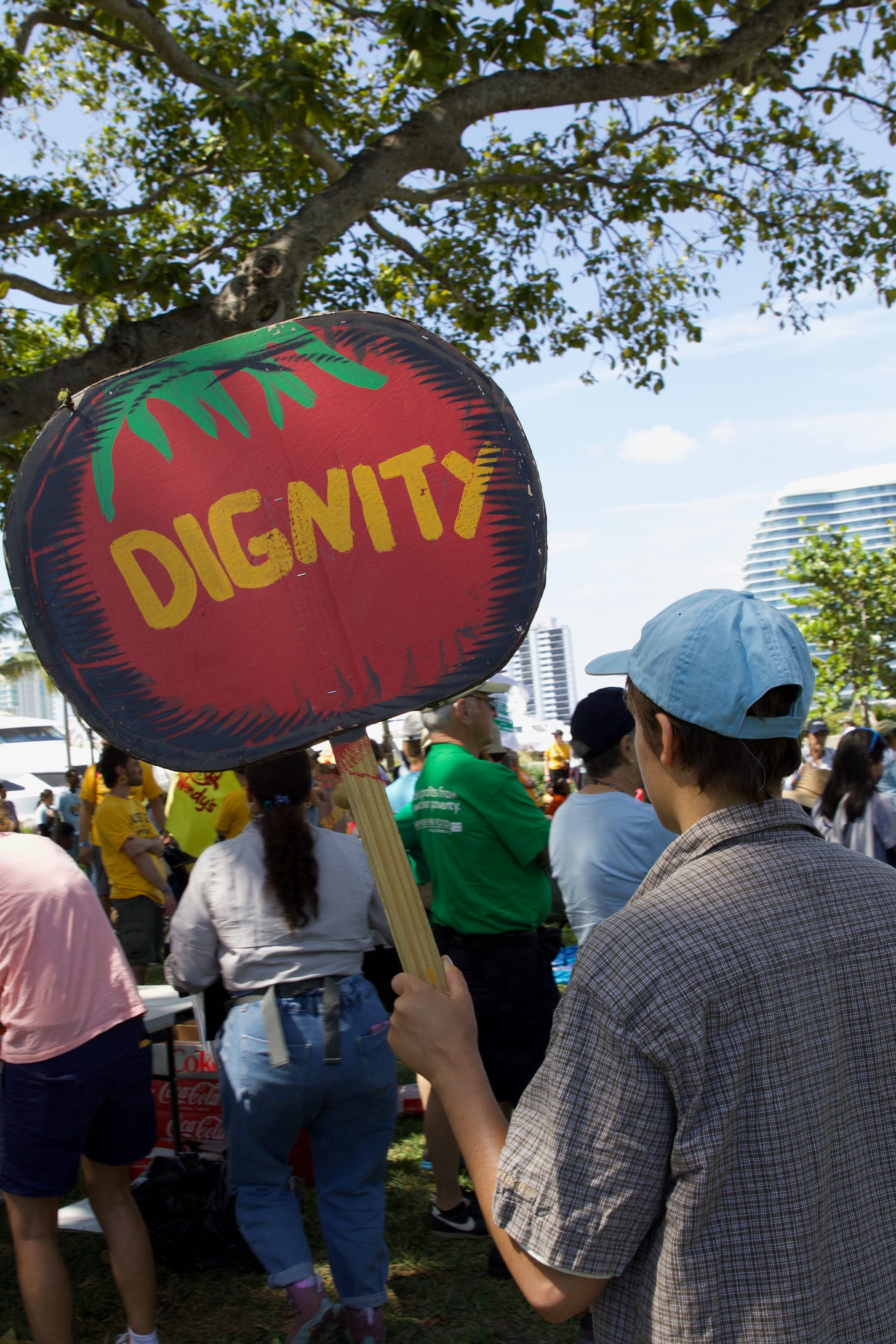From Pahokee to Palm Beach: A Farmworker’s Story
Farmworkers in Florida have a story to tell. This story is woven into the fabric of our state—from farmlands to the dinner table.

The Farmworker was tired and beat down from the Florida heat, still roasting the open field, even in mid-December. It had been a long day, longer than the day before, and he counted in his head, hundreds of watermelon he picked from the vines. It was back-breaking work but his family needed the money and he’d do anything to help—to be their provider.
He looked up, wiped his brow and noticed another worker close by, hoisting the big green fruit into a hollowed-out school bus. The Farmworker thought about his own children back home and hoped to see them again soon.
In the distance, he saw a barbed wire fence in place for containment. But there weren’t any cattle or unruly herds in the field. There were only farmworkers and the wardens who watched around the clock. Despite the open air and blue sky above, the Farmworker wouldn’t call this freedom, not by a long shot. He and his fellow migrant companions had no way out and no foreseeable way to a better opportunity . The owner of the contracting company, Bladimir Moreno, had taken their passports and threatened them with arrest and deportation if they didn’t do as asked.
As they lay in their beds that night, inside the cramped housing unit, some of the younger workers whispered of escape. But the Farmworker just sighed and said nothing. There wouldn’t be any escape until Moreno no longer needed them and some of the workers, including himself, still had debts to pay off.
But something had happened a few days later. Two farmworkers, both also working on H-2A visas, escaped captivity by hiding in the trunk of a car. The Farmworker heard about their escape and wondered about the men’s fate. What if they were arrested? He didn’t know. But what the Farmworker also didn’t know is that the two men who escaped called the Coalition of Immokalee Workers (CIW), based out of Immokalee, Florida, and together they reported Bladimir Moreno and his co-conspirators to the police.
Though the farmworker described above is fictional, the story itself is not. Bladimir Moreno, owner and operator of Los Villatoros Harvesting LLC (a criminal labor enterprise), was arrested and later convicted of multiple crimes including federal racketeering and forced labor conspiracy that victimized Mexican H-2A farmworkers in the United States between 2015 and 2017. The two men who escaped Moreno’s forced labor operation in December of 2016, along with the help of CIW, triggered a state and country-wide investigation after they alerted local authorities.

It’s investigations like these that help uncover the horrors often experienced by agricultural workers in the United States, and according to farmworker protection organizations such as CIW, these inhumane conditions have haunted-and continue to haunt- immigrant farmworkers, contributing to the ongoing crisis of ‘modern-day slavery’ where men and women are subjected to physical and psychological abuse in the fields, sexual abuse, and human trafficking.
In 2011, CIW created the Fair Food Program, a community-driven partnership that benefits everyone in the supply chain from farmworkers, growers, commercial retailers, and consumers. Several retailers, such as Burger King, Taco Bell, Walmart, Trader Joe’s, and more have joined the Fair Food Program. But others, most notably Publix, Kroger, and Wendy’s, have stalled, and according to farmworker advocates, these food giants continue to work with farms that don’t participate in the Fair Food Program- farms where abuse reportedly continues.
In protest of these company holdouts and to build awareness, farmworkers, their families, and their consumer allies from across the country took to the streets. Beginning on March 14, CIW and fellow marchers gathered in the rural town of Pahokee, Florida and headed- on foot- to the luxe island of Palm Beach, home of Nelson Peltz, billionaire head of Trian Partners, a hedge fund with the top stake in Wendy’s.
After a five-day, 45-mile trek on foot through sunshine, rain, and the Florida heat, they arrived in Palm Beach Saturday morning for the final rally, before marching through the oceanfront town. Speakers told the impassioned crowd that “the time has come for the sun to shine” on the “modern day slavery” that persists in the farming industry all while “companies collect profits.”

The United States has a long - and at times - complicated relationship with migrants, immigrants, and immigration. Still considered the land of opportunity, where anyone can achieve the American Dream, people from all over the world—who also believe in this dream—have been arriving for centuries, creating a better life for themselves and their families. According to the Immigrant Learning Center, there are approximately 44 million immigrants in the United States.
The New American Economy reports, that as of 2019, almost half—or 48.9 percent—of all agricultural workers were foreign-born and more than one-fourth were undocumented. In crop production specifically, almost 57 percent of workers were immigrants, including 36.4 percent who were undocumented. In Florida 64.5% of the agricultural workforce are immigrants. And yet, more workers are needed.
Consumer demand for fresh fruit and vegetables has increased over the past few decades and farmers worry about finding enough workers as few Americans are willing to take on the job of picking crops. Migrants - many who arrive on an H-2A visa - are willing to work these jobs, often for little money and long hours, and for many farmworkers, the risk is worth the reward, but only to a point.
This is where the Fair Food Program comes into play. Since its inception in 2011, workers have benefited from the elimination of sexual assault, forced labor, and violence, in addition to collecting better pay. But farmworker advocates say they will continue to battle for a complete victory, because - as one speaker told the crowd on Saturday - they have “truth on their side” and that is “why we march.”
For more information about CIW and the Fair Food Program, visit Coalition of Immokalee Workers (CIW).




